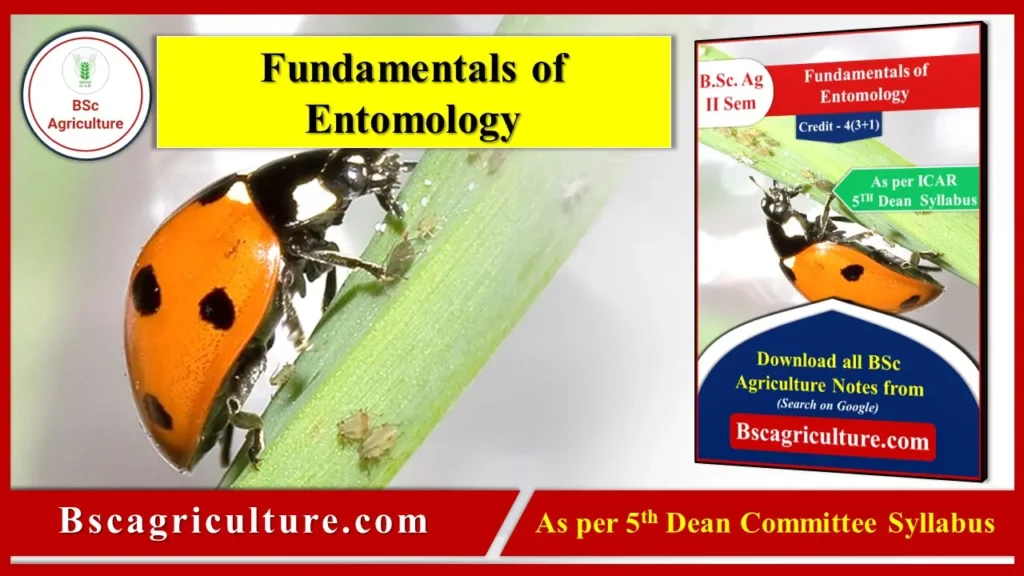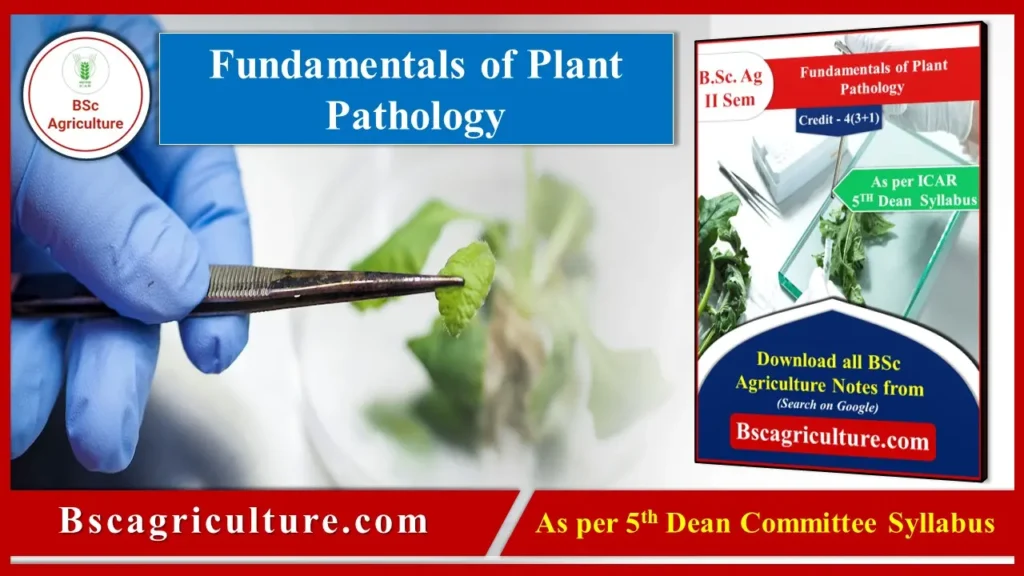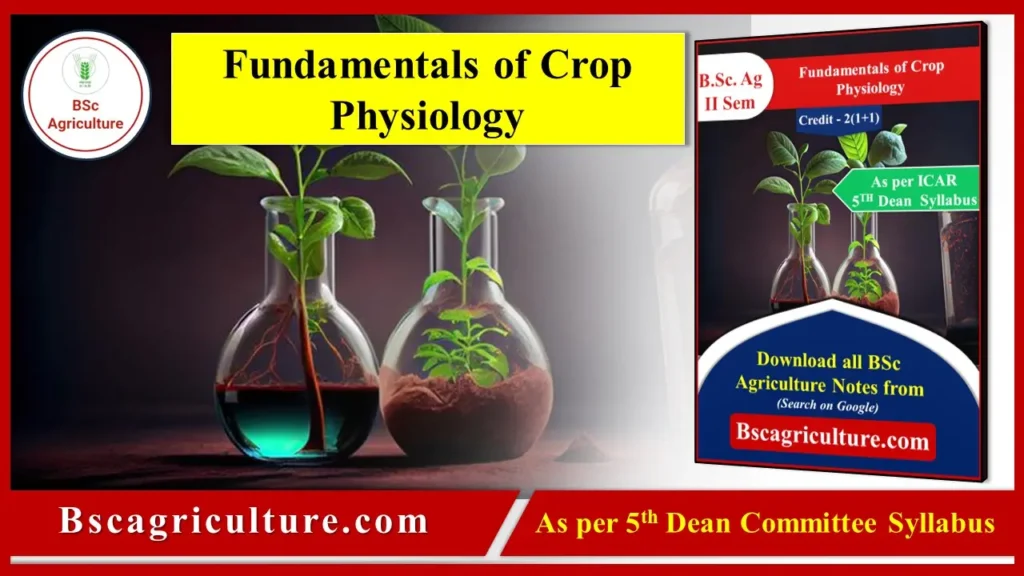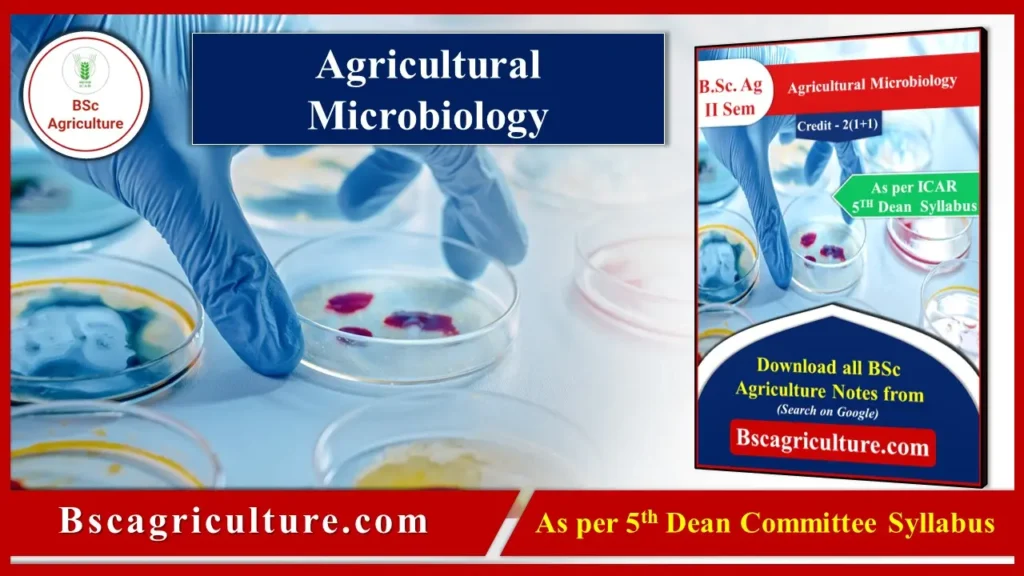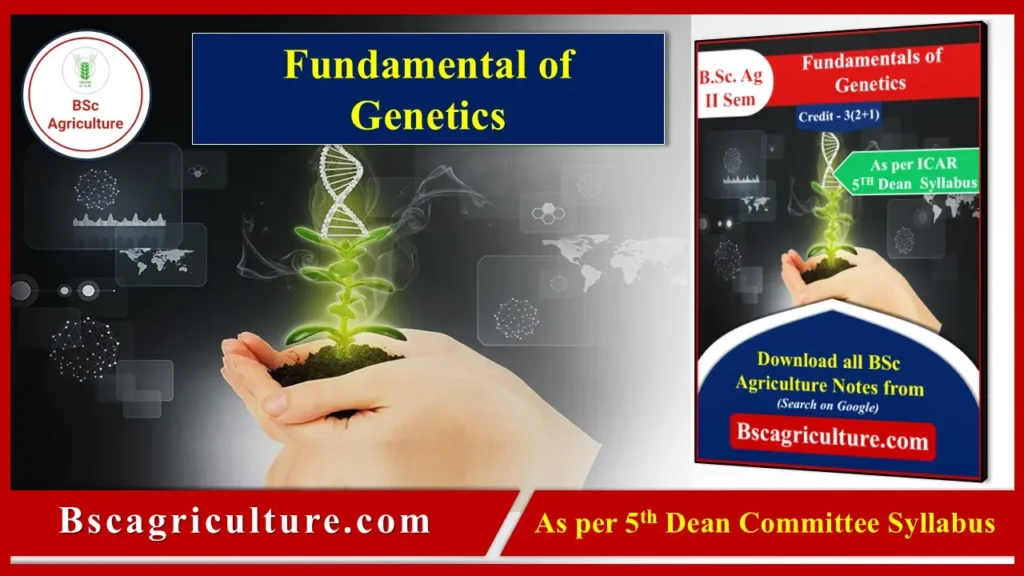Fundamentals of Plant Pathology
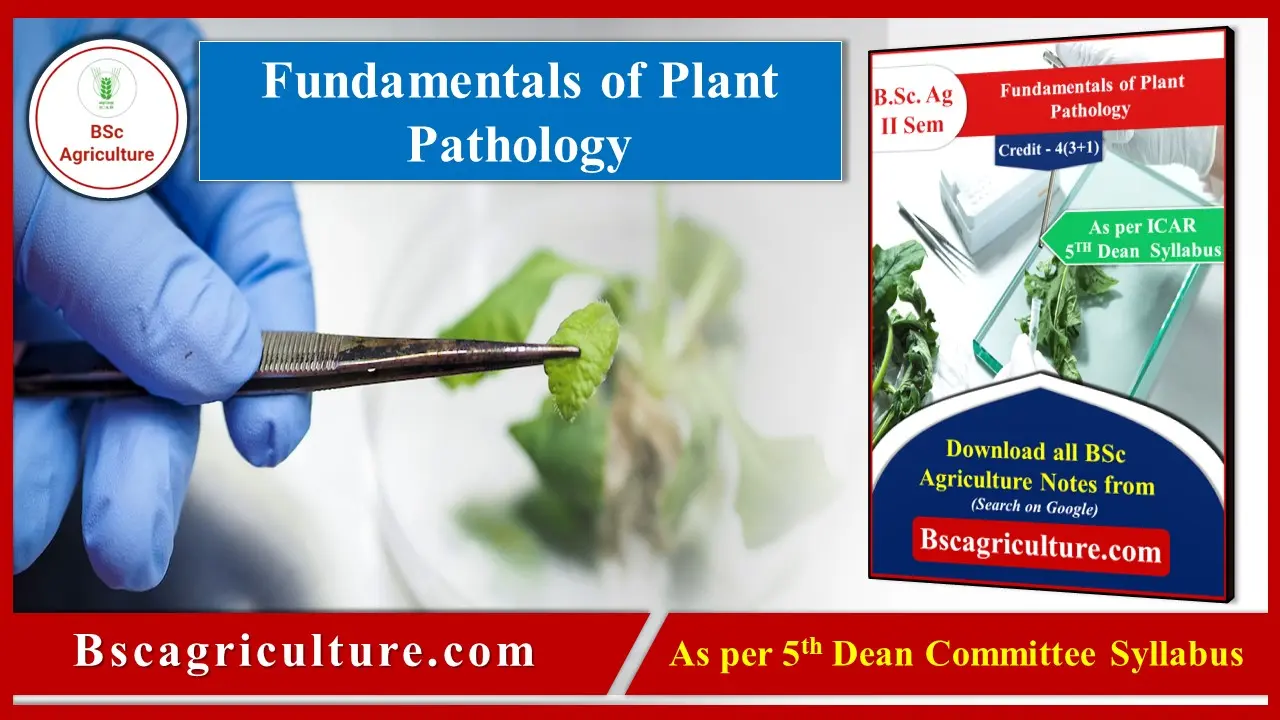
Fundamentals of Plant Pathology is a basic book that gives idea about principles of plant disease, causes, and management. It provides a detailed about various plant pathogens, including fungi, bacteria, viruses, nematodes. This is the basic fundamental subject for first year BSc Agriculture students. If you’re looking for Fundamentals of Plant Pathology notes you’re at the perfect place. Here, you can find all BSc Agriculture notes at one platform. We have updated the Fundamentals of Plant Pathology notes as per latest ICAR 5th Dean Committee syllabus. Here you will also find Fundamentals of Plant Pathology syllabus and notes.
| Course Name | Fundamentals of Plant Pathology |
| Number of pages | 60 |
| PDF Size | 1.63 MB |
| Syllabus | As per ICAR 5th Dean committee |
| Course | BSc Agriculture |
| Semester | 2nd Semester |
| Language | English |
| Notes Source | RSKVV, ICAR |
Fundamentals of Plant Pathology Syllabus : Theory
Importance of plant diseases, scope and objectives of Plant Pathology. History of Plant Pathology with special reference to Indian work. Terms and concepts in Plant Pathology. Pathogenesis. Causes / factors affecting disease development: disease triangle and tetrahedron and classification of plant diseases. Important plant pathogenic organisms, different groups: fungi, bacteria, fastidious vesicular bacteria, phytoplasmas, spiroplasmas, viruses, viroids, algae, protozoa, phanerogamic parasites and nematodes with examples of diseases caused by them. Diseases and symptoms due to abiotic causes.
Fungi: general characters, definition of fungus, somatic structures, types of fungal thalli, fungal tissues, modifications of thallus, reproduction (asexual and sexual). Nomenclature, Binomial system of nomenclature, rules of nomenclature, classification of fungi. Key to divisions, sub-divisions, orders and classes.
Bacteria and mollicutes: general morphological characters. Basic methods of classification and reproduction.
Viruses: nature, structure, replication and transmission. Study of phanerogamic plant parasites.
Nematodes: General morphology and reproduction, classification, symptoms and nature of damage caused by plant nematodes (Heterodera, Meloidogyne, Anguina, Radopholus etc.) Growth and reproduction of plant pathogens. Liberation / dispersal and survival of plant pathogens. Types of parasitism and variability in plant pathogens.
Pathogenesis. Role of enzymes, toxins and growth regulators in disease development. Defense mechanism in plants. Epidemiology: Factors affecting disease development. Principles and methods of plant disease management. Nature, chemical combination, classification, mode of action and formulations of fungicides and antibiotics
Fundamentals of Plant Pathology Syllabus : Practical
Acquaintance with various laboratory equipments and microscopy. Collection and preservation of disease specimen. Preparation of media, isolation and Koch’s postulates. General study of different structures of fungi. Study of symptoms of various plant diseases. Study of representative fungal genera. Staining and identification of plant pathogenic bacteria. Transmission of plant viruses. Study of phanerogamic plant parasites. Study of morphological features and identification of plant parasitic nematodes. Sampling and extraction of nematodes from soil and plant material, preparation of nematode mounting. Study of fungicides and their formulations. Methods of pesticide application and their safe use. Calculation of fungicide sprays concentrations.
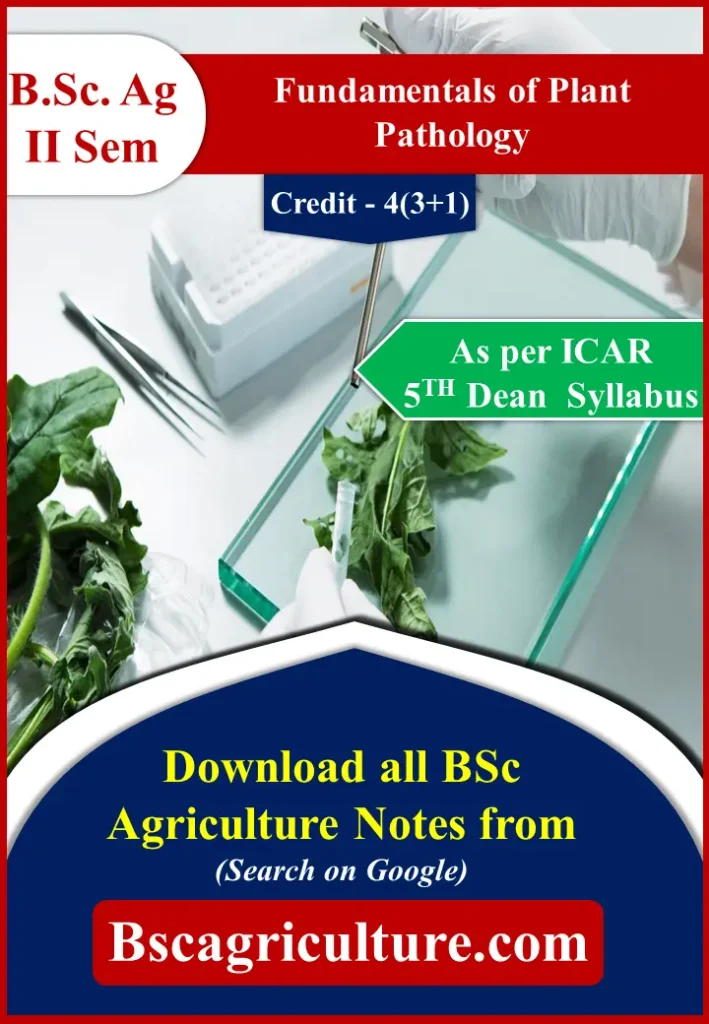
Other Notes
- Fundamentals of Agricultural Extension Education
- Fundamentals of Entomology
- Fundamentals of Plant Pathology
- Fundamentals of Agricultural Economics
- Fundamentals of Crop Physiology
- Soil and Water Conservation Engineering
- Agricultural Microbiology Notes
- Fundamentals of Genetics
Join Times of Agriculture
Get the latest Agriculture Magazine and regular important updates right on your phone.
👉 Join WhatsApp Group
